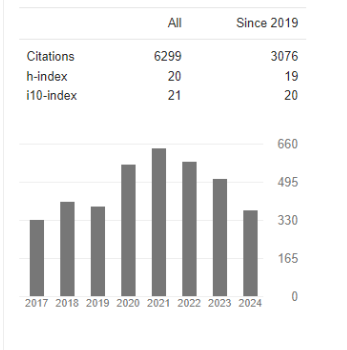Rifaximin for Hepatic Encephalopathy Post Trans jugular Intrahepatic Portosystemic Shunt-A Meta-Analysis
Abstract
Nirmit Patel, Aakash Patel, Shrey Mehta, Himaja Reddy Garlapati, Utsav Vaghani, Urvashi Rathod, Aneri Patel and Harshil Patel
Background In cirrhotic patients with portal hypertension, complications such as variceal bleeding and refractory ascites can be challenging. While TIPS offer a highly effective and less invasive solution for managing these complications, its widespread use is hindered by the notable risk of post-TIPS Hepatic Encephalopathy (HE). The role of rifaximin in preventing HE episodes after TIPS remains uncertain, leaving room for further investigation to better understand its potential benefits in this context.
Methods A systematic search adhering to Preferred Reporting Items for Systematic Reviews and meta-analysis guidelines (PRISMA) was performed. Online bibliographic databases PubMed, Embase, and Cochrane were included. Online search was conducted from inception to 2nd March 2021 without any restriction variables including language, type of study, year, or author. Using boolean logic, a combination of MeSH terms “rifaximin” “transjugular intrahepatic portosystemic shunt” “TIPS” and “hepatic encephalopathy” was used to conduct a comprehensive search in the above-mentioned databases A cross-reference check of previously published meta-analysis on this topic was also performed. In an attempt to decrease the risk of bias inherent in including observational studies, propensity score matching outcomes were included based on availability.
Results A total of 3 studies with 535 patients were included in the meta-analysis. The pooled analysis revealed that rifaximin significantly reduced the risk of HE recurrence post-TIPS (p<0.05). Additionally, rifaximin was associated with a favorable safety profile, with a low incidence of adverse events (p<0.05). Subgroup analyses based on rifaximin dosages and treatment durations provided further insights into its efficacy.
Conclusion This meta-analysis indicates that rifaximin demonstrates promise as an effective and safe treatment option for patients experiencing HE post-TIPS. The findings support the integration of rifaximin into the management of HE in this specific clinical setting. However, further well-designed, randomized controlled trials are warranted to strengthen these findings and optimize the therapeutic strategy for managing HE in patients following TIPS intervention.




